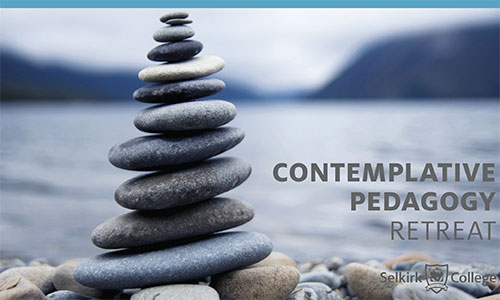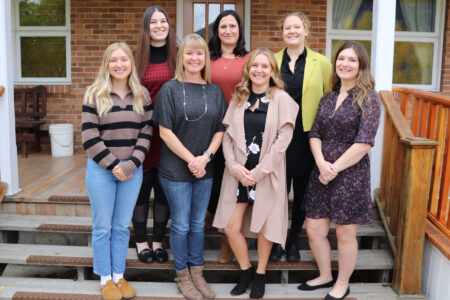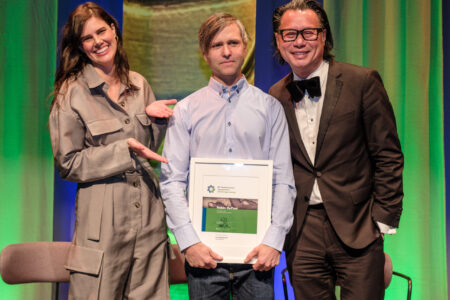Educators: Learn to Help Your Students Focus
Educators from around the region are being invited to come together at the Selkirk College Mir Centre for Peace in mid-June to better develop tools that will assist students in finding ways to focus their minds and find meaning in what they are learning.
The Contemplative Pedagogy Retreat takes place in Castlegar on June 12 and 13. Hosted by Selkirk College’s Contemplative Practice Group and the Teaching & Learning Institute, the two-day retreat is intended for educators of all kinds to examine contemplative practices that foster resilience, curiosity and thoughtfulness in their students. The two days will be about the different ways to approach the subject and the different ways individuals—both student and instructor—respond to the practices.
“The practices we use in contemplative pedagogy are by no means new, but there has been a renewed concern in recent years as a reaction to an increase in the mind’s distraction,” says Rossland’s Almeda Glenn Miller, Selkirk College University Arts & Science Creative Writing and Literature Instructor.
One of the organizers of the retreat, Miller says the two days will provide a great opportunity for educators to expand their knowledge. Dr. Daniel Barbezat—Professor of Economics at Amherst College and Executive Director of the Centre for Contemplative Mind in Society—is returning to the West Kootenay to help participants consider how contemplative inquiry informs the practice of educators.
“We hope to bring educators of all kinds together to explore what it means to incorporate contemplative practices into our pedagogy,” says Miller. “Many educators are dealing with some difficult questions about how to deliver a meaningful education to our students. Introducing contemplative inquiry into my curriculum has offered both my students and myself a meaningful way to peel back the many layers of creative and critical thinking in our writing.”
The rigours and pressures of learning at a higher level can take a toll on students, but contemplative practice in the classroom can lessen the stress and produce better overall results.
“Dealing with 21st Century environmental issues can be emotionally exhausting,” says Rebecca Jacobson, an instructor in the Selkirk College School of Environment & Geomatics. “Just taking a few minutes out to contemplate the bigger picture or spending some time working silently and thoughtfully helps us to gain much needed perspective while deepening our compassion and desire to be a part of the solution.”
The questions raised around introducing contemplative practice into the classroom range from incredibly simple to intriguingly complex. Contemplative practice can be as simple as taking a few moments to reflect and write.
“Students have so appreciated starting their Health and Wellness class with a five minute period dedicated to writing in their gratitude journal,” says Jane Green who teaches in the Selkirk College Classroom & Community Support Worker (CCSW) Program. “This gratitude journal time seems to change their perspective from busy to present and grateful.”
Contemplative pedagogy provides a pathway for students to move beyond a narrow approach to subject material.
“When contemplative practices and techniques are incorporated into our classrooms and educational institutions, there is an opportunity to develop a depth of learning that both students and faculty value and strive for,” says Dr. Elizabeth Lund, Coordinator of Selkirk College’s Rural Pre-Med Program and the engine behind bringing contemplative pedagogy to Selkirk College.
Lund says students must be able to respond swiftly as well as thoughtfully to problems presented to them on a daily basis.
“We aim to present subject material in a holistic, integrated fashion, to emphasize the many dimensions and repercussions associated with knowledge and invention,” she says. “Our minds are nimble and by incorporating contemplative practice into our classrooms we help to build the capacity of the mind to develop sustained awareness, focused attention, adapt, create, and engage with the subject material.”
The retreat is open to educators at all levels. For more information or to register go online to:


























